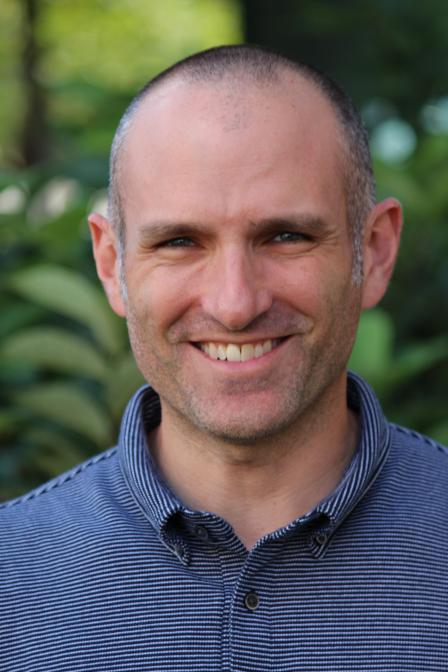Meet EPA Research Epidemiologist Jason Sacks, MPH
 Meet EPA Research Epidemiologist Jason Sacks! EPA Epidemiologist Jason Sacks works to protect and improve air quality by helping to develop Integrated Science Assessments, which form the scientific basis of the National Ambient Air Quality Standards.
Meet EPA Research Epidemiologist Jason Sacks! EPA Epidemiologist Jason Sacks works to protect and improve air quality by helping to develop Integrated Science Assessments, which form the scientific basis of the National Ambient Air Quality Standards.
How does your science matter?
The Integrated Science Assessments (ISAs) form the scientific basis of the National Ambient Air Quality Standards (NAAQS). EPA sets the NAAQS for common outdoor air pollutants that are considered harmful to public health and the environment. EPA is required to review the standards – and the science behind them – periodically to determine whether changes are warranted. That’s where my work on the ISAs comes in. My main responsibilities consist of gathering and reviewing the latest scientific evidence of health effects from air pollution for the development of these assessments.
I also initiate research and collaborate with other EPA scientists to address key questions we identify during NAAQS reviews, such as assessing why there is regional and city-to-city variability in results of studies examining the relationship between short-term fine particulate matter (PM2.5) exposure and mortality, and identifying those populations at greatest risk of an air pollution-related health effect. I have also helped develop materials to communicate the health effects of PM and wildfire smoke, such as continuing education courses for medical professionals.
My work in synthesizing the evidence across multiple ISAs and leading the recently completed particulate matter (PM) ISA directly supports Agency efforts to ensure there is clean air. It’s fulfilling knowing that all the time and effort working on the ISAs has contributed to improving the health of the American people.
Tell us about your background.
I had a long and winding path towards EPA. As an undergraduate at Rutgers University, I worked in a cancer lab and thought I would embark on a career as a bench scientist, working in a lab. Upon graduating from Rutgers with a B.A. in Biology, I obtained a fellowship at the National Institutes of Health working in a developmental biology lab. It was a great experience, but I still didn’t know exactly what I wanted to do. I stumbled upon epidemiology one day and said that’s it, that’s what I want to do. The lab I was working in happened to have a job opening for a lab technician, so once my fellowship was over, I worked full time while also pursuing a Master’s in Public Health at Johns Hopkins University where my studies concentrated in epidemiology and infectious diseases. Upon completing my MPH, I had a unique background, but did not have practical public health experience. I ended up at a consulting firm in the environmental health division. The consulting firm was working on developing the EPA tool BenMAP, and that was my first foray into air pollution epidemiology. That initial experience drew me into a career in environmental health and eventually to landing a job as an epidemiologist at EPA.
When did you first know you wanted to be a scientist?
I have gravitated towards science as far back as I can remember, but it took me a while to figure out exactly what I wanted to do. The turning point was during undergrad when I was an engineering major and I realized how much I missed biological sciences, so I switched my major to biology.
If you could have dinner with any scientist, past or present, who would it be? What would you ask?
Dr. Anthony Fauci. When I worked at NIH, I was lucky enough to see Dr. Fauci give numerous seminars. I was mesmerized by his passion and his work on infectious diseases, specifically HIV. I would ask him how over the course of his career has he been able to so seamlessly navigate communicating science, especially to people that are skeptics. And selflessly, I’d also talk to him about his passion for running, which I have also developed over time.
If you weren’t a scientist, what would you be doing?
I would like to think I’d be doing something with sports. I’m a big sports fan and it would have been great to be involved in some way.
If you could have on superpower, what would it be and why?
To slow down time. I was always told to soak in every minute with your kids because before you know it, they’ll be off to college. That is definitely true because my two girls are growing too fast!
Any advice for students considering a career in science?
You don’t need to know exactly what you want to do for your career early on. You never know what experiences or situations you may be in over time that can take you in a different direction. I can honestly say I did not envision a career in environmental health, but now I can’t imagine doing anything else.
What do you think the coolest scientific discovery was and why?
The development of the first vaccine. The amount of lives vaccines have saved over time is just amazing.
What do you think is our biggest scientific challenge in the next 20/50/100 years?
Climate change. The changing climate is intricately linked to so many environmental and public health issues. I worry that if we are not able to make tangible gains that it will lead to even bigger problems than we are currently experiencing.
Editor's Note: The opinions expressed herein are those of the researcher alone. EPA does not endorse the opinions or positions expressed.
